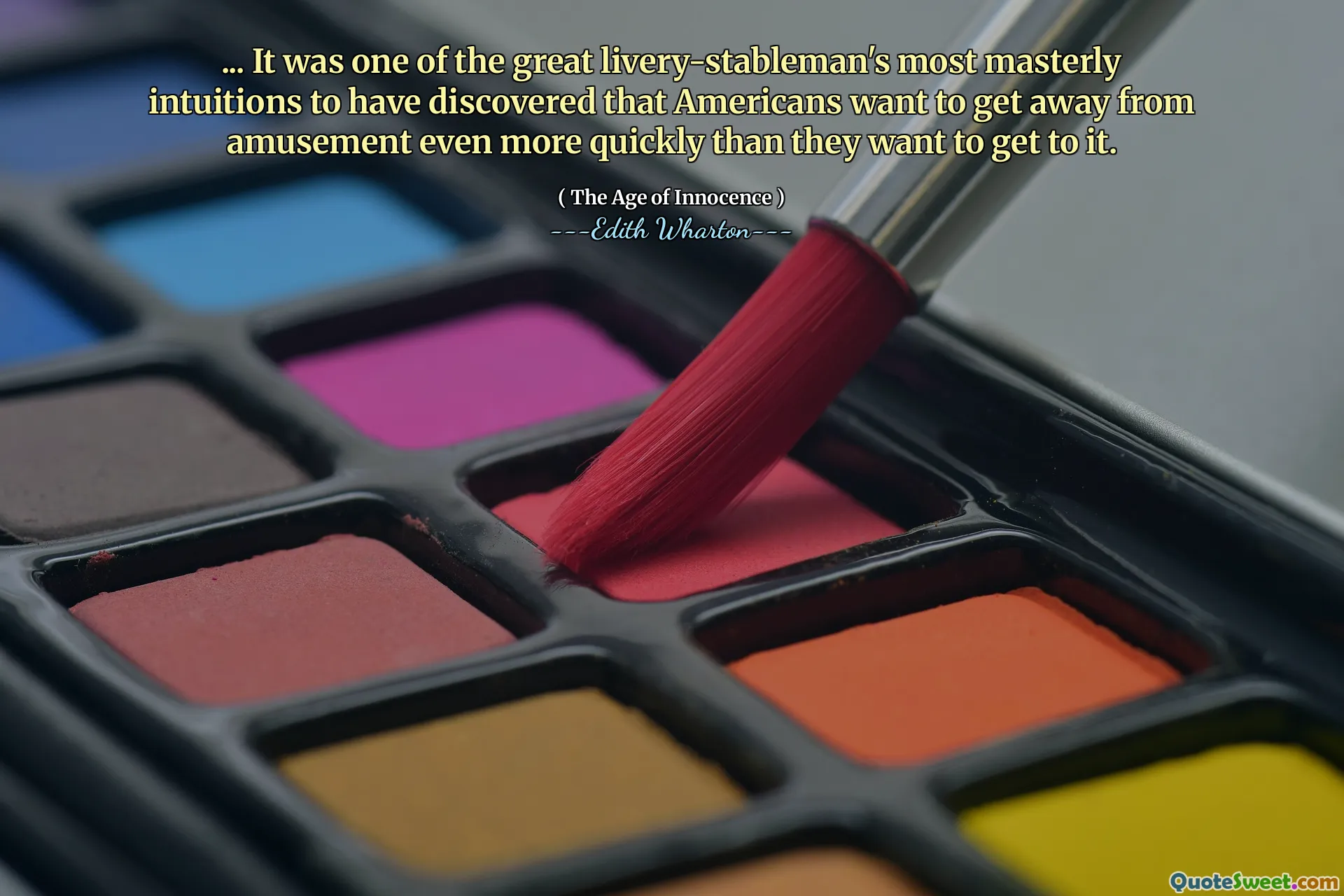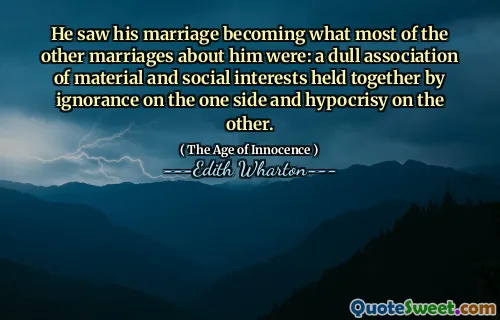
... It was one of the great livery-stableman's most masterly intuitions to have discovered that Americans want to get away from amusement even more quickly than they want to get to it.
This quote offers a keen insight into American cultural tendencies, highlighting a tendency to seek authenticity and a desire for disconnection from superficial entertainment. It suggests that Americans often prefer to escape or retreat rather than indulge continuously in amusement, reflecting a pursuit of meaningful experiences over fleeting pleasures. The notion of people wanting to get away from amusement emphasizes a cultural preference for genuine engagement, introspection, or even solitude, rather than remaining immersed in endless entertainment. Such a pattern can be linked to a broader societal appreciation for values like independence, self-reliance, and perhaps a skepticism of superficiality. It implies that the true pleasure for Americans might lie in the act of escaping the spectacle rather than in consumption itself. This perspective raises questions about how modern entertainment continues to evolve—whether it still serves as a temporary escape or if it has become all-consuming. Wharton's reflection draws attention to the tension between superficial amusement and the deeper pursuits that define personal and cultural identity. It also prompts one to consider how societal habits shape perceptions of satisfaction and fulfillment. More broadly, this insight can be linked to the American ethos of seeking authenticity, personal growth, or peace away from the hustle of modern life, often through transient outlets. Understanding these tendencies can help contextualize American social behaviors, arts, and leisure, revealing underlying motivations for their approach to entertainment and relaxation.






